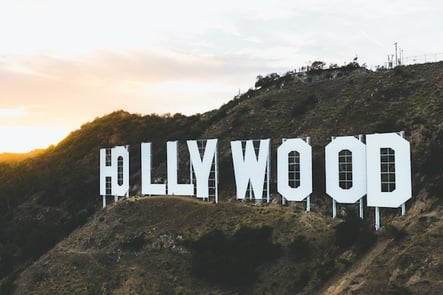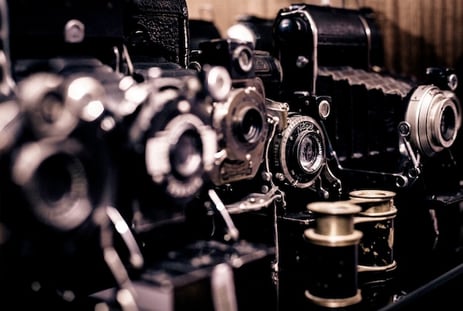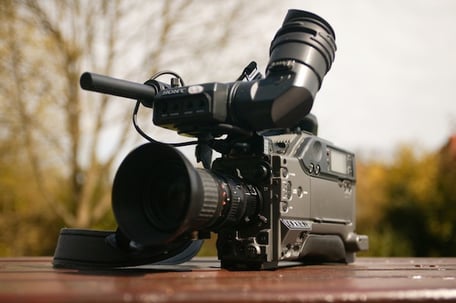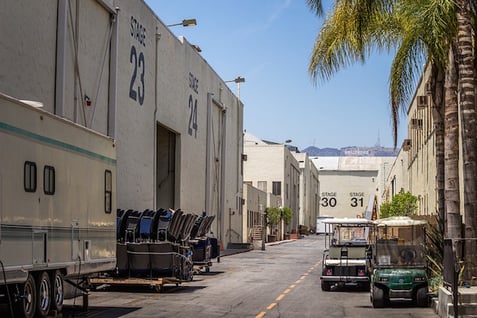
In the past few years, applying to film school has gotten extremely competitive: top schools like USC's School of Cinematic Arts now boast lower admission rates than the Ivies. Simultaneously, the number of film programs has grown—rising from about 300 in 2006 to almost 400 today.
With so many programs available and so much competition for the top spots, where should you apply? In order to help you find the right school for you, I've compiled a list of the best film schools in the US, based on my experience as a film student and actress in LA.
How Is "Film School" Defined for This List?
I'm categorizing film school as a school where film is a priority. These schools are either conservatories or have specialized film schools within a larger university.
As a graduate of USC's film school, I know from experience that going to film school has many advantages. You'll be surrounded by students and teachers who will inspire you, help you with your projects, and will likely be your future colleagues. Furthermore, you'll be at a college that doesn't view your passion as simply an extracurricular.
All that being said, you can get a film degree from other universities. However, this list is for students who are 100% sure they want to study film and are looking to be surrounded by like-minded students.
The Evaluation Criteria for the Best Film Schools
You should never look at rankings as fact—not even those from trusted industry sources like The Hollywood Reporter. Instead, you should use these articles as a jumping off point for your own college research. Also, whenever looking at a ranking list, you should find out how the rankings were determined.
Right now, I'll explain how I came up with this very unscientific list of top film schools. I began by restricting my search to colleges that prioritize film by only offering arts degrees or by having a specialized film school within the larger institution. Then, I took the following three criteria into consideration:
#1: Ranking. I used ranking lists from respected industry papers such as The Hollywood Reporter as a starting point for my research.
#2: On and Off-Campus Extracurricular Opportunities. Success in the entertainment industry depends a lot on who you know. In order to get to know more people (beyond your classmates and teachers), you need to have the opportunity to intern with production companies, studios, agencies, management companies, post-houses, casting offices, etc. Also, it's important to have opportunities to make films and showcase your work in order to get your name out there and to get feedback. Does the school provide opportunities to make and screen student films?
#3: Notable Alumni. How many alumni have risen to the top of their field? If a lot have, it means the school likely provided them with the resources (aka connections) and/or skills needed to succeed.
I split this list into two tiers rather than ranking each school, since specific rankings are typically not that meaningful.
What separates the Tier 1 schools is that they have the best reputation, provide the most extracurricular opportunities and have the longest lists of notable alumni. While the Tier 2 schools are also good, they don't have the same industry connections and don't have as many notable alumni as the Tier 1 schools.
 Consider attending a school in the heart of Hollywood!
Consider attending a school in the heart of Hollywood!
Tier 1 Film Schools
Tier 1 includes the very best film schools in the US — these are extremely prestigious programs with many successful alums.
University of Southern California's School of Cinematic Arts
I may be biased as an alum, but you'd be hard-pressed to find any ranking list that didn't have USC near the top. The USC School of Cinematic Arts has more connections in the entertainment industry than all of the other schools combined (and a Hollywood Walk of Fame star in front of the school to prove it).
USC's Los Angeles location helps make it a top film school. You're not just given internship opportunities: you also have opportunities to go to industry events (with students occasionally being offered free tickets to Hollywood premieres) and more potential to network with industry professionals.
The School of Cinematic Arts is extremely selective, with only about 3% of applicants being admitted. There are separate undergraduate programs for animation, screenwriting, critical studies, media arts, interactive media, and film production.
USC is arguably one of the more "practical" schools I'll discuss because it tries to prepare students for the changing medium (as it expands beyond typical movies to web series and virtual reality) by allowing students to take classes on new media.
The list of notable alumni is incredibly long (George Lucas, Judd Apatow, Paul Feig, and many more), but even more impressive is that basically every Hollywood office I interned at employed at least one USC alum.
The school provides access to great off-campus internships throughout the school year and summer at places such as NBCUniversal, Lionsgate, and Pixar. Additionally, there are many opportunities to screen your work. These opportunities include the prestigious USC First Look Film Festival, which is attended by many industry professionals.
NYU Tisch
I don't know if NYU Tisch students heard this adage as well, but the saying in film circles goes, "If you want to make a living, go to USC; if you want to make art, go to NYU." It has to do with Tisch's location: while L.A. is the center of commercial film and television, New York has become the center of independent filmmaking.
Tisch's undergraduate program only offers three degrees: Film & Television, Cinema Studies, and Dramatic Writing. NYU focuses on churning out true auteurs who have strong visual storytelling skills, preparing them for success in the independent filmmaking world.
While NYU does have some famous alumni working in Hollywood such as Martin Scorsese and Spike Lee, it has a longer list of alumni working in the independent scene: Alfonso Gomez-Rejon (Me and Earl and the Dying Girl), Joel Coen (Fargo), documentarian Morgan Spurlock (Super Size Me), and experimental filmmaker George Von Steiner.
Due to its New York location, NYU provides students with the opportunity to intern year-round at places such as Fox Searchlight, The Tonight Show Starring Jimmy Fallon, and Late Show With Stephen Colbert. Also, the school provides tons of opportunities to screen your work, including at the Manoogian Screenings (held at the Directors Guild Theater in Los Angeles).
 New York is another great place to be for film!
New York is another great place to be for film!
AFI
AFI is always near the top of any film school ranking list. A true film conservatory without the traditional college experience and general education requirements, AFI offers certificates to those without undergraduate degrees and MFAs to college grads.
The programs at AFI are extremely specialized (more so than any other school on this list), allowing students to graduate with unique degrees in Directing, Cinematography, Editing, Producing, Production Design, and Screenwriting.
AFI boasts an impressive list of alumni including Darren Aronofsky, David Lynch, and Terrence Malick. Its LA locale allows students to intern throughout the year. That being said, as a conservatory, AFI prioritizes helping students make films rather than helping them get internship opportunities. However, making and screening films is equally important to interning. By making and screening films, students can see how audiences respond to their work and get better at their craft.
AFI students make TONS of films. For example, in the first year alone, Directing, Producing and Cinematography students have the opportunity to make three narrative projects. Editing students work on up to six projects, Production Design students work on up to four, and Screenwriting students write at least one of short film and start working on a feature screenplay. There are prestigious screening opportunities such as at the famous AFI Film Festival.
 Some schools still use old school cameras!
Some schools still use old school cameras!
Tier 2 Schools
Tier 2 schools also offer top film programs, but they don't have as many industry connections or as many notable alumni as the Tier 1 schools.
UCLA
As an alum of their rival school, it pains me to include them on this list, but UCLA's film school is top notch and very competitive, with only about 30 students admitted each year.
UCLA is less specialized than the other schools on this list, only offering undergraduates a generalized Film, Television, and Digital Media degree. Students do pick concentrations within the degree, but not until spring of their junior year; concentrations include Film Production, Documentary, Screenwriting, Animation, Digital Media, or Cinema & Media Studies.
Just a few of UCLA's famous alumni include Francis Ford Coppola, Alexander Payne, and Rob Reiner. UCLA offers juniors and seniors the opportunity to intern year-round. Past students have interned at places such as NBC Universal and Bad Robot.
Chapman University
Chapman's film school gives students the opportunity to specialize at the undergraduate level with unique degrees in Film Production, Digital Arts, Creative Producing, Television Writing, Screenwriting, New/Broadcast Journalism and Documentary. This makes Chapman a great option for high school students who know what niche of the film industry they would like to partake in before entering college.
The school boasts a handful of notable alumni such as The Amazing Race producer Darren Bunkley, Masters of Sex editor Rebekah Parmer, and Dear White People director Justin Simien.
Unlike other schools on this list, Chapman has its own production company, Chapman Filmed Entertainment, which gives students experience in making, marketing and distributing films. This is an incredible opportunity that most students don't get while in school; it allows them to learn the ins and outs of fundraising, marketing, and distribution in addition to production.
Chapman offers some screening and internship opportunities though not as many as other schools. Its location in Orange County, about a 45-minute to two-hour drive to LA depending on traffic, makes it difficult to intern during the school year.
Loyola Marymount University (LMU)
LMU's School of Film and Television allows students to get specialized degrees in Production, Animation, Screenwriting, Film Studies, or Recording Arts. It's one of a handful of schools with the Recording Arts degree, making it a perfect choice for students who know they want to pursue careers as sound editors, sound mixers, or sound designers.
It has some well-known alumni such as James Bond franchise producer Barbara Broccoli, The Simpsons producer David Mirkin, American Horror Story writer/producer James Wong, and Hunger Games director Francis Lawrence.
LMU recognizes the importance of internships and partners with big companies including Disney, Sony, NBCUniversal and Paramount to provide internships to about 100 LMU students each year.
 Most film schools provide you with top of the line equipment.
Most film schools provide you with top of the line equipment.
Boston University
Boston University's Film & Television Department only offers more general Film & TV or Cinema & Media Studies degrees at the undergraduate level. However, BU provides students with a well-rounded degree offering courses in production (directing, editing, cinematography, sound design, short film production), film and television screenwriting, producing, management, and film studies. For students who are unsure about film school, BU is a great option because you don't officially declare your major until spring of your sophomore year, so you can test out film and pick another major if you don't like it.
BU has a handful of famous alumni including Joe Roth, Howard Stern, and Nina Tassler. Recognizing its sub-optimal location and how crucial LA connections are to future success, BU opened an LA campus that over 200 students visit each year. While in LA, BU students partake in internships at companies such as The Jim Henson Company.
California Institute of the Arts
CalArts is a conservatory that was founded in 1961 by Walt Disney and is well-known for producing A-list animators like John Lasseter. In addition to two animation degrees (Character Animation and Experimental Animation), however, CalArts also offers a Film and Video degree.
Since CalArts is primarily lauded for its animation programs, the majority of its famous alumni (with the exception of Tim Burton) are animators: Frozen co-director Chris Buck, Big Hero 6 director Don Hall, and Inside Out director Pete Docter.
The school's location about 45 minutes outside of LA makes it difficult to intern during the school year. However, CalArts does do its best to help students get credit for internships during the school year and summer.
Emerson College
Emerson has also recognized the importance of LA connections for students, opening a campus in Hollywood and hosting an annual Los Angeles-based film festival. Emerson is the only school in the country to offer a comedy arts degree, making it a great choice for students who want to work exclusively in comedy filmmaking.
The school boasts some well-known alumni such as New Regency's Pam Abdy, DreamWorks' Holly Bario, Sony's Andrea Giannetti, Viacom's Doug Herzog. The school provides students with excellent screening opportunities such as at the Los Angeles Emerson Film Festival.
Which of These Top Film Schools Is the Best Choice for You?
Just because, say, AFI is a highly reputable film school doesn't mean that you should automatically want to go there. It's a tiny school with a very intense program, which may not be the best fit for all students. Here are some questions to ask when trying to pick which film school is right for you.
Which Area Do You Want to Specialize In?
So you're interested in film — do you want to do animation or screenwriting? Directing or production design? Look into the programs and see what specialties are offered. For example, CalArts would be a better choice than AFI if you want to do animation since AFI doesn't even offer an animation specialty.
At this point, you might not know what you want to specialize in, and that's okay. I had no idea which aspect of film I loved the most when I applied to film school. If you're in this boat, you should apply to a program with a more generalized film production program (such as USC, UCLA, Emerson, BU, LMU, and NYU) that'll allow you to experiment with different roles on set. You wouldn't want to be accepted as a Screenwriting student at AFI, only to then realize you actually want to be a cinematographer.
What Opportunities Are There Outside the Classroom?
I touched on this above, but make sure you go to a school where the opportunities fit your interests. If you want to work as an agent, then USC, which provides internship experiences at agencies, would be a better fit than AFI. Extracurriculars are where you get your experience, so make sure you'll be getting experience that aligns with your interests.
What's the School Like?
Is it big or small? Is it a conservatory or is it at a large college? If you dread the idea of a big school, don't go to a big school. If you'd dread being surrounded by a sea of students and going to USC football games, then you probably shouldn't attend USC.
If you get overwhelmed by intensity, then a conservatory like AFI may be a bad choice. AFI is famous for its "narrative workshops," during which students are required to sit silently as their peers harshly critique their projects. It's scary, and has led to many students dropping out and fleeing to law school.
Pick a school where you will feel comfortable and at home so that you can thrive.
 If this is the end goal, then film school is where you should go!
If this is the end goal, then film school is where you should go!
What's Next?
Excited to attend one of the best film schools? Read our article on how to get into film school for tips on your application.
Most of these schools require an ACT or SAT score with your application. Get help studying for these tests with our ultimate SAT study guide and study guides for ACT Reading, Writing, English, Math, and Science.
Taking the ACT or SAT really soon? Check out our guide to cramming for the SAT or our guide to cramming for the ACT.
Want to improve your SAT score by 160 points or your ACT score by 4 points? We've written a guide for each test about the top 5 strategies you must be using to have a shot at improving your score. Download it for free now:
Have friends who also need help with test prep? Share this article!

As an SAT/ACT tutor, Dora has guided many students to test prep success. She loves watching students succeed and is committed to helping you get there. Dora received a full-tuition merit based scholarship to University of Southern California. She graduated magna cum laude and scored in the 99th percentile on the ACT. She is also passionate about acting, writing, and photography.



































 Holly R.
Holly R.